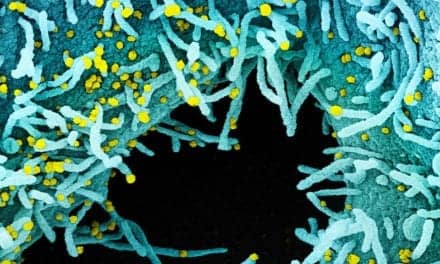Beckman Coulter Diagnostics and MeMed, a provider in the emerging field of advanced host-response technologies, have partnered to develop and commercialize a host immune response diagnostic assay, the MeMed BV test, which is able to distinguish between bacterial and viral infections for use on immunoassay analyzers.
Symptoms of bacterial and viral infections are often clinically indistinguishable, which creates challenges for physicians when deciding to start treating patients with antibiotics or not. Unfortunately, this ambiguity can result in the underuse and overuse of antibiotics. Studies have shown that underuse of antibiotics for patients with a bacterial infection can reach 20%.i While overuse of antibiotics contributes to antimicrobial resistance, which is one of the top 10 global public health threats, according to the World Health Organization.ii
Today, antibiotic-resistant infections account for more than 700,000 deaths globally with the potential to increase to 10 million deaths by the year 2025.iii
MeMed BV Test
MeMed BV is a diagnostic test developed to address management of patients with acute infection in different clinical settings, including emergency departments. The MeMed BV test uses machine learning to integrate measurements of three key host-immune proteins (TRAIL, IP-10, and CRP) into a score indicating the likelihood of bacterial or viral infections. This performance has been validated on MeMed’s compact immunoassay platform (MeMed Key) in multi-national blinded validation studies as well as in real-world use, altogether in over 20,000 patients. MeMed BV on MeMed Key is U.S. FDA cleared, CE-Marked and approved by the Israeli Ministry of Health.
Under the terms of the agreement, Beckman Coulter has obtained the rights to develop and co-promote the proprietary MeMed BV test on its Access Family of Immunoassay Analyzers.
“We are thrilled to be partnering with MeMed to make this novel test available to millions of patients through our Access Family of Immunoassay Analyzers. The ability to distinguish between bacterial and viral infections early in the diagnostic process has significant potential to impact patient care, as well as combat antimicrobial resistance,” says Julie Sawyer Montgomery, president, Beckman Coulter. “Today’s investment reflects our commitment to continuously expand our IA menu through novel biomarker development; advance Emergency Medicine diagnostics alongside our MDW biomarker to measure infection severity; and complement our microbiology innovations critical to identifying specific bacterial infection to optimize antibiotic therapies.”
Eran Eden, PhD, MeMed’s CEO and co-founder, added: “Our vision for MeMed BV is that it becomes standard of care, enabling significant improvements in patient management to address the urgent global antimicrobial resistance threat. We believe that forging a strategic alliance with an industry leader, such as Beckman Coulter, will expedite the realization of this vision and support better clinical, operational, and financial outcomes for healthcare systems globally.”
References
i Craig JC, Williams GJ, Jones M, Codarini M, Macaskill P, Hayen A, et al. The accuracy of clinical symptoms and signs for the diagnosis of serious bacterial infection in young febrile children: Prospective cohort study of 15 781 febrile illnesses. BMJ. 2010 Apr 20;340.
ii No Time to Wait: Securing the Future From Drug-Resistant Infections, Report to the Secretary-General of the United Nations, April 2019, Interagency Coordination Group on Antimicrobial Resistance
iii World Health Statistics 2022, Monitoring health for the Sustainable Development Goals, World Heal Organization, 2022





